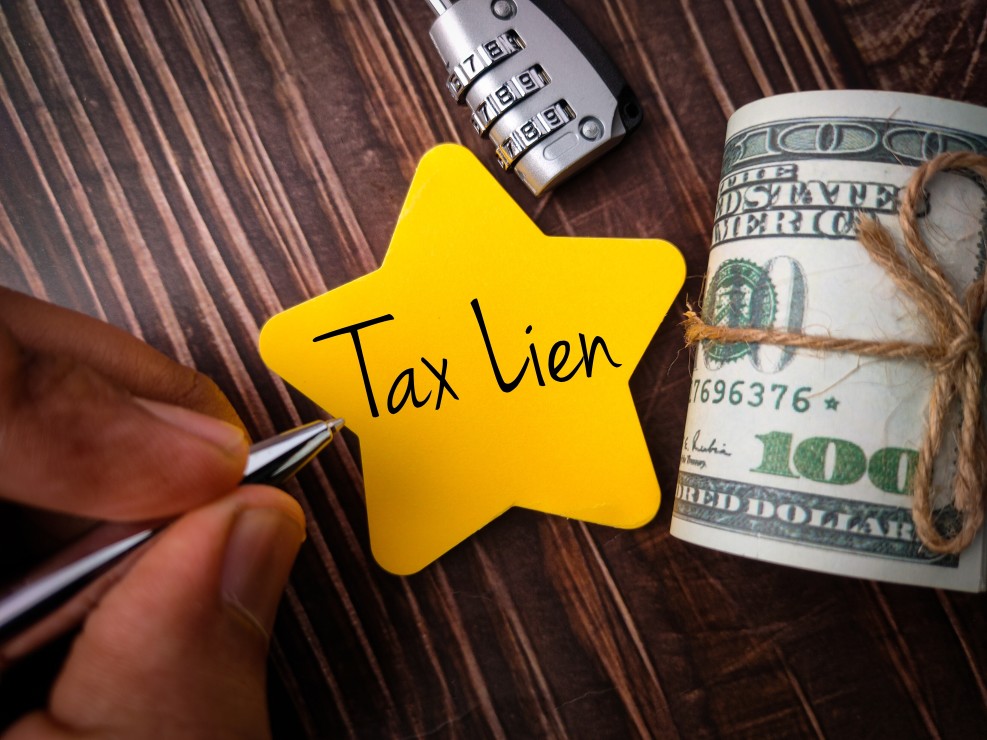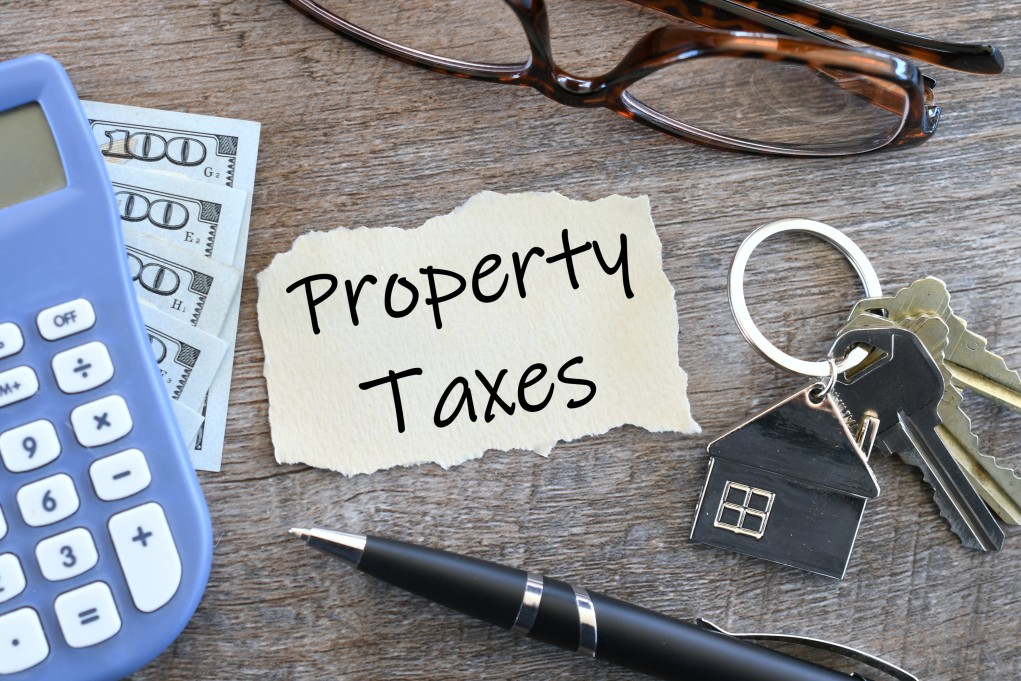There are those days when you have too much on your schedule even to complete anything. Unfortunately, this can also be the case for a real estate property.
Being encumbered means being dragged, inconvenienced, restricted, or slowed down. Encumbrances can also arise from steering. A house may be encumbered by factors that make its sale, inhabitation, or use difficult or impossible.
In this article, we will expound your knowledge on ‘What Is An Encumbrance in Real Estate?’ and the type of restrictions or hindrances you may encounter.
A third party may claim ownership, possession, or hold property even though they are not the owner. Various situations may lead to this landing in the following categories:
These claims may restrict the owner’s ability to sell or use the property, or transfer ownership. They may also reduce the property’s market value.
These are negative aspects of the property caused by financial issues.
Liens
A lien is a debt from third parties that use the owner’s assets as collateral. They claim the assets as a means of payment or leverage for payment.
They do not affect the owner, but they stick to the property only. This means that a change in ownership would still affect the new owner, but a legal change in ownership would mean paying off any liens on the property.
To clear their property of encumbrance, the owner can pay off their debts.
Some types of liens include
This is also called the “artisan’s lien.”
If a service is delivered to the property and not paid, they can apply a lien against it. These services may be plumbing, construction, furnishing, renovation, among many others.

If a property owner fails to pay the necessary property taxes, the government seizes the property through a court order until the taxes are paid. If the property has a mortgage, the tax lien will take over, and this may be a headache for the mortgage lenders, who will have to protect it by paying off the taxes and then seeking payment from the owner.
This is a lien against payment for storage services rendered to someone. Failure to pay the fees allows the holder to withhold the property at hand till the lien is covered.
This is a lien on items that may change in nature, but the lien remains. A house may have a lien on antiques, and the lien remains even if these are switched or replaced.
A floating lien is held by valuable assets that are the collateral for payment.
These are liens that do not rely on laws or statutes but depend on contracts for their existence. A typical example is a mortgage.
This lien is mostly questionable as other liens do not require the owner’s permission, but in this case, contracts are signed by the owner.
Mortgages allow the owner to pay off the property without paying the total price as a one-time payment. The house is used as collateral, but nothing will happen to it, provided that the mortgage is paid at the agreed time.
Well, one may think they are getting off without electricity, water, or sewer bill payments, but when it comes to selling the house, they will find liens for the unpaid utility bills on the property. These service liens have to be cleared before the home can be sold.

These encumbrances affect the house’s title, preventing it from being sold or used.
Liens have a general toll on the property title, preventing it from being sold. Involuntary liens are placed without the owner’s knowledge or approval.
Lis pendens is a term used to mean pending legal action and is placed on the property by a party awaiting the intervention of the law in a dispute. It restricts sales or transfers of ownership until the case is settled.
Some instances where a lis pendens may be filed include:
Private homeowners may restrict land use for particular reasons. These are stated in the deeds, and, most of the time, they affect large pieces of land that are sold off as smaller parts.
A huge piece of land may have restrictions on, let’s say, growing specific types of plants or building certain types of buildings that are specified in the deed.
The deed restrictions are on the land, and even if the property ownership changes, they are still in place as they run with the grounds.
Planned unit developers and homeowner associations may use deed restrictions to regulate land use in the area. These may include parking regulations and maximum or minimum house sizes to maintain the value of the neighborhood.
Hot Tip: An aspiring home buyer should check to see if there are any restrictions on the land or property use before acquisition.
These are agreements between two parties to use or rent a particular piece of property for an agreed period. Any dues are decided on and paid within a specified time frame.
The lease gives the leaseholder a right to use the property within the agreed conditions.
Leases prevent any use or sale of property by the owner or a third party while still active. Unless there is a violation of the lease terms, this calls for legal action but not direct action by the violating or violated party.
This is a legal right that allows a non-holder of a property to acquire it within the state’s specified terms. One of its supporting beams is eradicating non-used land all over the state by putting it to use through someone else.
This law gives rights to squatters to claim your property if they meet the legal requirements. These may include
| ✅Criteria: |
| Being open and obvious about their stay on the property and not hiding it. |
| Paying any fees or taxes on the property for the specified amount of time. |
| Maintaining and doing any repairs on the property, such as landscaping and fixing any damage. |
| Staying on the property continuously for the minimum time stated by the law, for example, five years without leaving to go elsewhere. |
If a squatter meets these criteria, they may file an adverse possession claim, which entitles them to the property even if the owner is aware of the claim.
Did you know: Your neighbor could also be a squatter by encroaching on your property, but the adverse possession laws may entitle them to the area.
The squatter must present any documents that defend their claim, like tax payment documents or color of title. This law may strip the property’s original owner of legal action against them if they try to claim it illegally.
These are inconveniences affecting the use or condition of the property.

A third party or court may restrict a property undergoing ownership disputes.
Banks can also seize property if it was the liability during a loan application, especially for high-interest loans, which give a small window for payment. If a bank holds a property, access is restricted to the owner or public unless auctioned or the loan settled.
A house with hanging payments like maintenance fees, utility fees, and property taxes may be withheld until the fees are settled. Liens often lead to property seizures until the debts are paid.
Environmental restrictions also come into play in cases like constructing buildings at a distance from water bodies or forests as a conservation method.
This is the use of land by the neighbor by building or putting up a structure like a fence on the owner’s land. They often happen unintentionally.
When the owner wants to sell the property, there may be issues with the boundaries that have to be resolved.
This is the right of another party to use an owner’s property. Easements happen once the owner signs a legal document that gives these rights, such as a deed.
Easements may often affect the process of obtaining a building permit. The permit may be denied if the building plans go against the easements on the land.
There are various types of easements, some of which correlate with others:
These occur when someone uses your property without your permission for their own reasons. It is often subject to adverse possession claims that legally allow this to happen and may even give the intruder rights over the intrusion.
This occurs when an easement is written after an agreement and put down in a deed.
These easements come about due to local custom but are not written down. An example is a common route through someone’s property that’s the only way to access the destination.
This is an easement between two linked properties, the servient (offering) and the dominant (benefiting). It is tied to the land and could include direct access to the road by a neighbor whose access is cut off by the neighboring land.
These are easements tied to someone benefiting from them.
These allow utility companies to access and use the land to lay sewage, gas, or water pipes.
These are restrictions in areas with historical or architectural significance. There may be strict rules on the types of buildings built or stringent rules permitting no construction at all.
Restrictive covenants also come into play in areas that govern building architecture and appearance. In many cases, a governing body enforces these rules and determines whether a piece of property complies with the regulations.
Some of these covenants are enforced in:
These are self-sustaining communities where the homeowners own the property and land, and various amenities make it seem like a small town. Some amenities may include grocery stores, medical centers, parks, and restaurants.
Roundup: To protect the value of the homes and reputation of developments, volunteers or appointed boards develop a set of rules that every member has to adhere to.
As much as the individual owns the land, these restrictive covenants withhold their freedom to use it outside the agreement.
These are condos often developed by a single contractor and have similar-looking houses and buildings. Since the development agency often owns the land, the residents are restricted to written rules and regulations defining their roles and rights.
Residents have to pay fees to the governing body for maintenance and other costs stated in their contracts.
Run the property through a title search to find out if any encumbrances will limit your use or prevent you from accomplishing any plans you have.
An easement may be terminated by:
1. Ending by necessity
This terminates the easement when it is no longer applicable.
2. A merger
People in the dominant state can get a court order to get the servient to give up their right of way.
3. Express agreement
This is a decision by the affected parties to lift the easement.
4. Abandonment
It occurs when an owner stops enforcing an easement over some time until it’s permanent.
Selling a house with a federal tax lien is possible. The law places a tax lien on a property to secure the payment of taxes, which can apply to both real and personal property with unpaid taxes.
When you don’t pay your taxes, the government has a lien on your property to protect its interest. The property is taken to satisfy the tax obligation by a levy.
The IRS has the authority to take, levy, and auction any real or personal property you own or have an interest in if you fail to pay or make arrangements to do so.
The possibility to sell your home even if the government has seized it remains high. For those who owe taxes, selling their home may be a viable option: Your mortgage lender and the government that has filed a tax lien could be paid if you sell your property for enough money.
To determine how much you owe in back taxes, you’ll first need to know the value of your property. In most cases, if your house or property is worth more than the taxes, and selling it will pay them in full, the sale will be approved.
Continue reading this article to delve deeper into Selling a House With a Federal Tax Lien.
As stated above, a lien is a legitimate claim put on a property. The lien claims ownership but does not take over. Tax liens might come from the federal government, or your bank can arrange a mortgage lien on your property.
A levy is the real seizure of property to pay a debt in full. If your state authorizes levies, it takes your property to pay a tax bill, a court judgment, child support, or alimony.

The federal government uses liens to compel income tax payments. However, your mortgage is a lien on your property, and there are times when they can be beneficial.
Having a lien on your home is an effective way for your mortgage lender to secure your property until the loan you took out to buy it is fully repaid.
Key Fact: Lienholders aren’t limited to real estate; in fact, personal property, commercial property, and other assets can all be subject to a lien.
Non-consensual liens can be created by either the lienor or the lienee. A non-consensual lien, like a judgment lien, is imposed without your consent. Your mortgage is an example of a consensual lien.
There is a wide range of liens to consider, and below we will explore each of them.
Liens on Federal (Income) Taxes
When you owe money to the federal government and haven’t paid it, the IRS puts a lien on your property.
It is now permissible for the IRS to seize your property if you don’t pay your taxes. If a company owes unpaid taxes, liens may be put on the individual or business’s assets. If you want to get the lien erased, you’ll have to pay both interest and penalties on the amount you owe.
A lien can be addressed in various ways, including paying off the obligation.
The Internal Revenue Code is what determines a person’s eligibility. When you get a discharge, you can sell your house to obtain money to pay off your debts.
The public notification of the Federal Tax Lien is removed when the lien is withdrawn. Lets the public know you are not competing with other creditors when it comes to the IRS for your assets.
Federal tax liens can be as frightening as the IRS, but various methods can help you to avoid liens.
Liens on property taxes

A property tax lien is a type of lien that you’ve probably already heard about after reading about income taxes.
Real property taxes fund public services like police, fire, and library departments in your municipality and county. Property tax liens are put on your property when a homeowner does pay their dues.
If you don’t pay municipal expenses like your sewer and water bill, you may end up with a lien on your home.
If you owe overdue taxes, you may also have to pay interest and penalties.
Top Tip: You can file for bankruptcy and have your debts discharged. You may also be able to work out a deal with the lien holder to settle your outstanding debts.
Judgment Liens
Judgment lien refers to the fact that a court has issued a judgment against a debtor for failing to pay their creditors. As previously stated, a judgment lien is a non-consensual form of a lien.
As long as you don’t object to this lien, the court will enforce it against the debtor. There is a court ruling after a creditor sues a debtor for repayment.
Another example of a judgment lien is when someone is injured in an accident, and you are sued for damages. If your insurance does not cover the damages, a judgment lien may be placed to ensure that you pay for them.
Taxes can be imposed through wage garnishment, property seizures, or liens on assets.
If a debtor fails to meet a contractual commitment, the creditor can enforce a judgment lien and seize the debtor’s real or personal property.
Individuals and corporations can be held responsible for the repayment of a lien. The creditor has access to assets ranging from the debtor’s business or real property to personal property such as cars, appliances, furniture, and other worthy belongings.
Remember: A lien can only be established on a specific sort of property if the state’s legislation permits it.
Selling a House with a Federal Tax Lien: A Practical Guide
It’s possible to go around the initial terms of a tax lien by disputing it or by negotiating around it.
Acquire and Present a Discharge Certificate
Request a discharge certificate from the IRS to remove a lien on your property. A certificate of clearance will allow you to sell your property and use the proceeds to pay off your debt. However, it will not completely remove your lien.
The certificate of discharge must be shown before the sale can be finalized. Once the monies from the closing have been sent to your creditor, the lien will be formally cleared. You’ll receive a letter from your creditor asserting that the lien has been removed.
Your home should be sold as-is.
Selling your home as-is is the best option, but bear in mind that simple repairs and modifications can increase its value.
Painting your entire house might cost you an additional month’s worth of interest and penalties. Due to fluctuations in the housing market, it may take some time until your home is sold.
Let go of the idea of refinishing your floors for the sake of expediency and sell your home as-is. Get your money fast so that you can get out of debt as soon as possible.
Don’t Pay the Liens You Don’t Have to Pay
Do not wait to register a challenge if you believe that your lien has been filed in error, most usually because it was meant to be filed in someone else’s name. If you’ve already paid it off, you may still find a lien on your credit report.
Tax professionals can help you plan ahead for this type of situation. In most cases, the IRS will not even consider your complaint unless a tax advisor is present to mediate. If your case necessitates legal aid, consider hiring a tax attorney to handle lien appeals and other legal issues.
Await the End of Your Lien.
Due to the risk of severe penalties, you should avoid attempting to delay the expiration of your lien. The previous paragraph said that liens could be refiled and that creditors usually do not wait for the lien to expire before collecting on it.
When they do, it’s usually because they have a relatively low debt load. If you’re waiting for your lien to expire, remember you’re gambling with the government and your finances. Use alternative methods to reduce the risk of severe repercussions while settling your lien.
Possibly Occurring Problems
To successfully sell your home and pay off your mortgage, you must be aware of the potential hazards that could jeopardize your sale.
Lien Debt Is More Expensive Than the Property.
Unless you have enough equity in your home to settle your tax obligation, you should first pay off enough of it to lessen your lien. Before you file for discharge, make sure to do this. The lien on your house won’t be reduced enough before you can sell it to pay it off.
There are few options left if you can’t pay off your debt with your house. No partial payments can be made with the property because the lien was filed to ensure that you are fully repaid. To avoid bankruptcy, you’ll need to lessen your lien enough to be able to sell your home.
Before filing for bankruptcy, be sure you know your alternatives. You will be unable to sell or auction your property if you file for bankruptcy because of the lien that will remain on it. However, you will be reimbursed for your debts by your creditors.
Finding of Liens

If you’re ashamed of your tax lien, it’s a bad idea to keep it a secret from the individuals helping you sell your house, whether it’s an attorney or a real estate agent.
A title search will reveal any outstanding tax liens on a property despite your best efforts to conceal outstanding liens. Selling a home with a federal tax lien can be difficult, so be honest with your real estate agent and/or attorney about your financial condition.
As a result, they may focus on lien-specific concerns and give the expertise needed to make the entire process more efficient.
Bear in mind: You can always seek assistance from a tax lien specialist, real estate agent, or lawyer.
Handle Your Tax Lien Right Away!
You don’t want debt to cling to you any longer, so you must make the difficult decision to separate yourself from your home. Financial freedom can be gained or lost by selling your house for cash. Without taking care of your lien now, you risk getting into much more difficulties in the future. Now is the time to go to our homepage and provide us with your residential address.
To put it briefly, “no.” In most cases, a tax lien won’t preclude you from purchasing a home unless the IRS is obliged to be the first lienholder on the property.
A tax lien will still exist on your real and personal property, and you will still be responsible for the total amount of your tax bill (as well as related interest and penalties). Subordinate your tax lien to a mortgage refinance, for example, and then use the money to pay off your tax lien.
Even though the IRS has more than 10 years to collect, the lien will expire after that period unless the IRS timely refiles it. Refiling of the tax lien by the IRS is considered a continuation of the original lien if it is done on time.
Legal action against unpaid taxes is serious business. The lien on your home or property indicates that you have not paid all of your federal or state income taxes. There is no immediate property confiscation with liens, but the next step is levies, which are serious business indeed.
Do Squatter Rights in Alabama apply? Squatter rights in Alabama generally are not recognized. However, adverse possession rules are respected.
It is unacceptable in this state for someone to claim the right to inhabit someone else's property falsely. To lawfully stay on the property, they must meet the standards of adverse possession.
To live in a property that has been foreclosed or abandoned without permission from the legitimate owner is illegal. An illegal occupant of land that does not belong to them is a squatter.
However, there are situations where squatting is permitted, although it is against the law. When squatters falsely claim property ownership, they are breaking the law. As long as they're not using bogus documents or statements, the landowner can take legal action against them.
Squatters frequently target abandoned buildings. In Alabama, the term "abandoned" refers to property taxes that have been unpaid for more than a year.
Each state area has its own unique set of rules and regulations, and in this article, we will be looking at Squatter Rights in Alabama.
While trespassing and squatting aren't the same things, they're often used interchangeably in the same context.
The key difference between the two is that trespassing is illegal, and squatting, on the other hand, is seen as more of a community issue. Legal action may be taken if a property owner can prove that the squatting party or parties are not welcome.
🔄Roundup: A trespasser will enter a property by causing damage, often by breaking a door or smashing a window which is why they are considered illegal. However, a squatter will access a property through an unlocked door or an already broken window.

Taking someone else's property without them knowing is a crime in Alabama. Laws legislated in the United States to protect land are referred to as "adverse possession." It was enacted for the benefit of the land, and it states that anyone who can use the land may register a claim if the current owner isn't using it.
There are many obstacles that squatters in Alabama face when acquiring property rights. There is a better chance for residents of Alabama than residents of other states to regain ownership of their property.
Alabama turns to "adverse possession" statutes to enforce its rights rather than relying on "squatters."
"Adverse possession" is a legally recognized concept that allows someone to claim ownership of someone else's property. In the past, examples of adverse possession included the continued use of a private road or drive and the development of underutilized land for farming purposes.
The law of adverse possession encourages those who are "adversely possessed" rather than the true landowner to use the ground to promote productive property use. This rule only applies if there are no other occupants on the property. The landlord, other tenants, or anyone else who isn't a tenant isn't allowed to share their possessions with them.
Following the state's statutory period, the land's ownership must always be maintained. According to the law, adverse possession can last three to twenty years.
Adverse possessors in many states have the option of extending their adverse possession period if the two professions are not separated by more than a year. Landowners under the majority age declared insane or incarcerated do not begin to run the statutory period.
There will be no delay in the statute of limitations if one or more of the conditions listed above is present during that time.
For an adverse possession claim to stand, squatters must have occupied the land for a set time. It takes at least 20 years of continuous occupancy for an Alabama squatter to be recognized as a legitimate claimant.
It's reduced to ten years if they have paid property taxes for the last decade. Many people take advantage of squatters ' rights to own a piece of property without paying rent or a mortgage.
When discussing adverse possession and squatters' rights, the term "color of title" is frequently used.
Squatters and trespassers have the legal right to occupy a piece of land. The color of the title can be affected by a claim of adverse possession. This could indicate that the property was not acquired in a "normal" manner, and as a result, they may be missing some of the required ownership documents.
The acquisition of a piece of real estate without the proper legal authority is possible. In this case, the squatter is entitled to the land they own. Only the portion of the property they have occupied is theirs in this case.

Before claiming adverse possession in Alabama, a squatter must meet the following conditions. Use the property per these guidelines:
Hostile and damaging occupation of genuine owner's property is required. Unauthorized entry into a property is not regarded as hostile. Once an owner's property interests have been threatened, they do not need to know about the occupation if it's detrimental to the owner's property interests.
🧠Remember: The term 'hostile' does not imply that the land was taken in an aggressive or violent matter but instead has another legal definition.
Three definitions of "hostile" are listed here:
A majority of the states in the United States adhere to this rule. Just trespassing on someone else's property, even if you are unaware of its ownership, constitutes "hostility.
It is well-known that trespassers intrude on private property without permission. Then they may have relied on incorrect or flawed paperwork in some way. In this case, the trespasser is unaware of the property's legal status.
According to this, the trespasser is present and acting as if they owned the property themselves. Provide proof of the landscaping and cleaning efforts on the property to demonstrate this.
The squatter or trespasser must make it clear that they are in control of the land to be deemed "open and notorious.". A trespassing investigation by a property owner can meet this standard even if the owner has reason to believe that someone is intruding.
The adverse possessor must have exclusive possession of the property to the exclusion of the legitimate owner, as defined by the "exclusive" possession condition.
They may, however, share ownership of the property with another person. In that circumstance, the property will be held in adverse possession by the two (or more) possessors. Everyone else is barred from accessing the land unless they pursue a claim of adverse possession.
The property must be either immovable or mobile. The nature of the possession must be visible, hostile, and uninterrupted over the period stipulated by the Limitation Act.
As stated, under Article 65 of the Limitation Act, adverse possession can not be declared quickly. The statute of limitations expiration, proof of adverse possession will be required. Because of this, unfavorable owners can use the property per its nature.
In some cases, these rules may not apply to all situations.
When tenants stay in a property after their lease has expired, they are known as "holdover tenants." If a landlord agrees to a person occupying their property, a holdover tenant must continue to pay rent at the same rate and terms.
Depending on the circumstances, the tenant may face legal consequences if the landlord orders them out of the property (or gives them "notice to quit").
🔑Key Fact: If tenants refuse to leave a property once the landlord has requested them to move out, they are unlawful detainers.
After receiving notice and being ordered to leave the property, a holdover tenant can no longer claim adverse possession. They are breaking the law by trespassing at this point.
Landlords can still collect rent from their tenants even if they don't want to leave their homes, and the tenant will hold Free-landlord status.
If a tenant knowingly occupies a landlord's property, the landlord can order the tenant to leave the property at any time, with or without notice.

By adverse occupation, squatters in Alabama are not required to show that they have paid their property taxes. If the property has been well maintained for at least 20 years, this is no longer necessary.
Those who have paid taxes for the past ten years are eligible for a ten-year suspension of their sentence. Squatters will have an easier time obtaining property ownership if they have this documentation.
❗Important: Your county will send a delinquency notice if property taxes are not paid. In this notice, you'll find out how much taxes you owe and the penalties that occurred, as well as a deadline to pay your overdue taxes.
In Alabama, removing squatters from a property is much easier than in other states. It's improbable that any legal issues will arise out of this situation.
Landowners and landlords can evict or reclassify illegal occupants as tenants. Squatters in Alabama are not required to follow a specific eviction procedure. If you want to evict them, do so as if they were tenants.
Legal and illegal activity are among the most common reasons for non-payment of rent. The landlord or landowner must issue an eviction notice to remove a squatter.
After receiving these notices, the squatters have seven days to leave the property, where they can decide to vacate or be evicted.
Squatter Rights in Alabama generally do not apply; however, the state does adhere to adverse possession legislation.
For a squatter seeking adverse possessions, they are legally required to meet a set of requirements such as being open, notorious, and exclusive.
Although squatters in Alabama are not required to pay property taxes, they may be eligible for a ten-year suspension off their original 20-year sentence if they pay taxes. Paying property taxes will allow squatters to obtain the property a lot easier if they prove they've paid taxes.
A landlord or property owner should always pay property taxes even if they are not occupying their property.
If you are unsure about turning off utilities on a squatter, check out more information in our helpful guide!